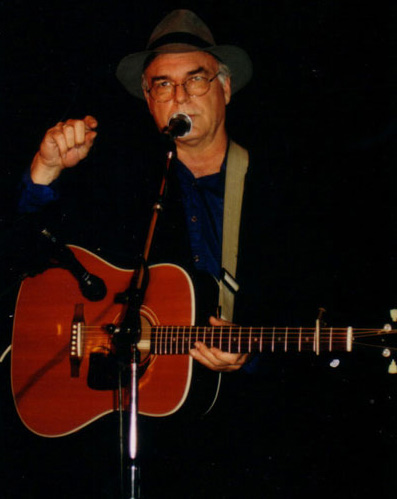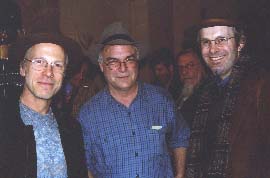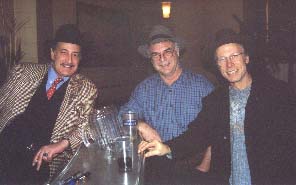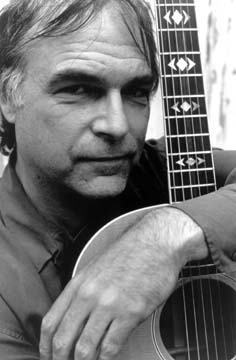presented from Nashville
David Olney
1948 - 2020

In Concert

Mardi 27 & Mercredi 28 Fevrier 2001

Acoustic
Music Matters In Paris
presented
from Nashville
David Olney
1948 - 2020

In Concert

Mardi 27 & Mercredi 28 Fevrier 2001

Murphy - Olney -Oudet
Set List Wednesday
1st set
If My Eyes Were Blind / God Shaped Hole / Women Across The River / Jerusalem Tomorrow / Fitzgerald’s Lament
Embraceable You / Millionaire / Vincent’s Blues / Rose Tattoo
Barrymore’s Bartender / Dillinger / 1917
2nd Set
If It Wasn’t For The Wind / If I’d Have Known I Couldn’t Do It / Bathsheba Blues
Lily Of The Valley / My Wild Youth / Rex's Blues
plus encores
Play With Fire / Chain Of Fools
and some more but the tape broke

More hats
James Arch, David & Elliott Murphy
Over the course of his defiantly independent-
and increasingly triumphant -career Olney has created quite an amazing tapestry.
On recent albums-from the French Prostitute musing upon the likely impending
deaths of the young soldiers who are her customers, to Robert Ford and Jesse
James' final conversation, to the inner monologue of Barrabas, set free as Jesus
dies-to OMAR'S BLUES, his latest, most ambitious and finest recording, David
Olney has emerged as one of the preeminent songwriters in America.
Ferociously intelligent and fearsomely unconventional, Olney came to Nashville
from the flinty coasts of Rhode Island. "When I got to Nashville, I tried
to play the game. I tried co-writing, tried to write to a formula, tried to
write hit songs," he shrugs. "I found out that I just couldn't do
it." What he found he could do, however, was to get inside the head of
characters-or things-and report what he saw.
Townes Van Zandt-one of the towering, troubled figures of 20th Century songwriting-specified
his favorite musicians as "Bob Dylan, Mozart, Lightnin' Hopkins and David
Olney."
Emmylou Harris- no slouch at recognizing a good song when she hears one- has
covered numerous Olney songs, including a harrowing reworking of "Deeper
Well" on "Wrecking Ball", her highly lauded collaboration
with Daniel Lanois.
After a long stint with Rounder , he felt it was time for a change and signed
to Nashville maverick label Dead Reckoning. Formed as a musician's collaborative,
Dead Reckoning has breathed new life into the sometimes staid world of Nashville.
The matchup with Dead Reckoning seems like a natural for Olney, who feels that
now, as a 50-year-old, he is finally hitting his stride as a recording artist.
"I've always found making records to be very hectic, very unnerving,"
he says. "I tend to doubt myself. But this time, I knew what I wanted the
record to sound like, I knew what songs I wanted to put on it, and in what order.
It just came together effortlessly. And if I have an issue I need to discuss
with the label, I can just meet them for a cup of coffee right in town, and
we all talk the same language, we're all musicians."


David Olney is one of the greatest songwriters alive,
in my opinion. His being darker and more "unpolished" than most performers
seems to put a few people off - but not for long. In the concert series I ran
in Augusta, Georgia for four years, I had David play in a songwriters' round
with Larry Jon Wilson and myself. We had done a small tour together and had
come to enjoy our stark differences in
style. Larry Jon was most reknown as a writer in the late 60's and 70's, and
is the best poet and songwriter to ever come out of Georgia (another opinion).
Just listening to him talk all night is like hanging out with
William Faulkner. His songs are poignant, sumptuous and very much rooted in
his Southern-American heritage. Our audience was familiar with their native
son, Larry Jon, and were very familiar with my music. But that strange, dark,
"scowling" guy in the third chair struck some people as out of place.
Larry Jon would start a round with his ultra-deep voice and warm Southern manner.
Then I would play one of my songs. The audience was extremely appreciative.
But they held their breath when the "scowling" new guy's turn came
up. After a few rounds, and after hearing "Jerusalem Tomorrow", "The
Road That General Lee Took", and "If It Wasn't For The Wind",
they were dumbstruck by the power of David Olney's poetry and delivery. Anyone
unfamiliar with this great writer's work would do well to give it
a listen. David's a good friend, but what I write here doesn't spring from that
bias. I loved his music years before I met him. And if anyone foolishly requires
commercial "credentials" before giving the "scowling guy"
a chance, check out recordings of David's songs by Linda Ronstadt and Emmy Lou
Harris.
He's one of the best. Jack Williams
annonce du concert de 2001 à l'Hotel du Nord dans Libé, par Serge Loupien
Steve Earle, le hors-la-loi biker, le cite couramment comme l'une de ses influences majeures. Steve Young, premier interprète notoire à piocher volontiers dans son répertoire, ne s'explique pas l'état confidentiel dans lequel Nashville s'efforce de le maintenir. Quant au regretté Townes Van Zandt, à l'origine de sa vocation après une rencontre arrosée dans un honky-tonk d'Austin, il voyait en lui le «Mozart de la country». Natif de Providence, David Olney a en effet tenté, comme n'importe quel songwriter, de placer quelques chansons douces-amères dans la capitale redneck du Tennessee. Sans grand succès, à l'exception de ce Jerusalem Tomorrow repris par Emmylou Harris ou du Women Across the River conseillé par cette dernière à son amie Linda Ronstadt. Après un bref détour du côté du rock plus rémunérateur, David Olney, faisant sien l'adage «On n'est jamais si bien servi que par soi-même», s'est donc décidé à fourrer quelques vêtements froissés dans sa vieille valise et à empoigner sa bonne grosse Gibson, histoire d'aller tenter sa chance acoustique sous d'autres cieux. Ses pérégrinations l'ont ainsi conduit à l'Hôtel du Nord, qui, en dépit de sa façade yankee, n'en finit décidément plus d'accueillir des hôtes sudistes.
in french in ze text, par François Gorin, Télérama
"@Townes Van Zandt était son ami. Un jour, il a dit de son cadet de quatre ans, qu'il était l'un de ses musiciens favoris, avec Mozart, Lightnin' Hopkins et Bob Dylan. Un autre jour, David Olney est passé par Paris et je l'ai vu — à l'Hotel du Nord ou à la Pomme d'Eve ? Bien sûr on a toujours la nostalgie de ne pas saisir un David Olney dans son jus, planté sur la scène d'un saloon poussiéreux, mal éclairé, sentant la bière et le whisky cheap. L'écoute d'un de ses albums peut faire cet effet-là. Deeper Well est le deuxième seulement paru sous son seul nom — les autres étaient en groupe —, en 1988. Tout y est bien, voix trempée, tempo maîtrisé (pas ou trot), guitares sèche, steel et slide, country-folk sans âge.
Mais au milieu il y a ce morceau incroyable. Ni Lightnin' Hopkins, ni Bob Dylan, n'en ont écrit ou chanté de tel. Pas plus l'ami Van Zandt. Ça s'appelle Jerusalem tomorrow. Le narrateur est un faiseur de miracles en bout de course. Il a eu son heure, back then I could really tell a lie… Il soudoyait un gosse pour jouer les paralytiques et le faisait remarcher. Il gagnait sa vie avec ce genre de tour. Mais les affaires périclitent, il prêche la tempête et les gens se barrent. Il rencontre un vieil homme, une sorte de collègue, mais différent : Instead of callin' down a fire from above / he just gets real quiet and talk about love… Plus bizarre encore, ce type ne fait pas ça pour l'argent. Il décide de le suivre et passe un contrat. A la fin de la dernière strophe, ils se dirigent vers Jerusalem. We're headed for Jerusalem tomorrow. Toute la chanson s'est déroulée calmement, sur une mélodie d'avant le déluge, avec juste un picking de guitare et un violon juif ou irlandais. La voix grave est impassible, les mots simples et factuels, tous à leur juste place, pesés au milligramme, l'absence d'effets totale. Et le silence qui résonne alors est indicible : le récit prend fin, l'histoire que tout le monde connaît commence. Diable de David Olney.
David Olney Jerusalem tomorrow (1988/2012)